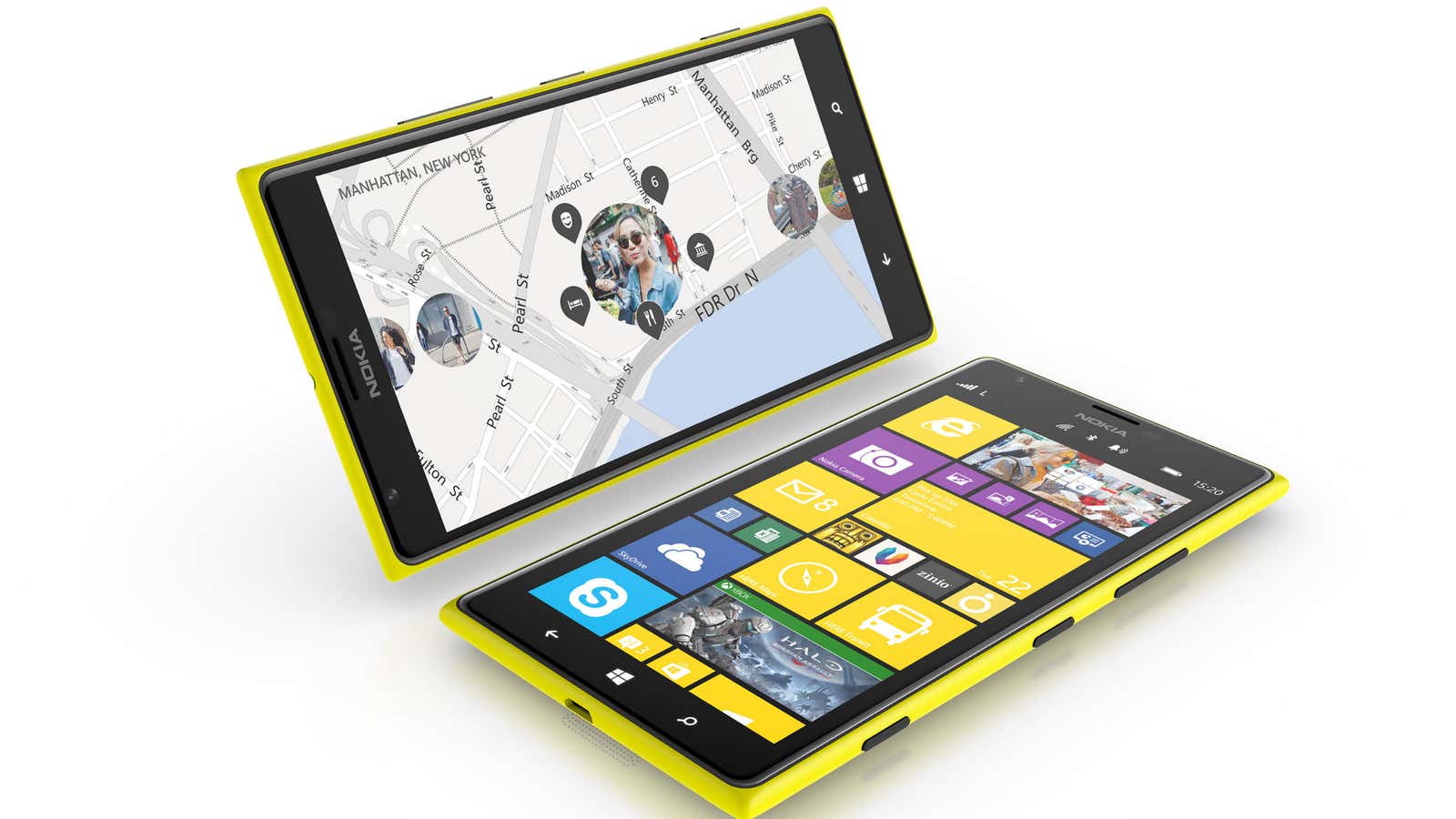We’re down to two mobile operating systems. Apple’s iOS and Google’s Android control 94% of the market, while their competitors have lost ground.
BlackBerry withered away this year. An ambitious attempt to crowdfund the Ubuntu Edge, a new phone and operating system based on Linux, raised less than half its target amount. And in January, Nokia CEO Stephen Elop issued the death certificate for Symbian, his company’s once-promising operating system (OS).
But 2014 is a new year, and it will see plenty of challengers, some of them backed by the heaviest hitters in the business. Here are a few.
CyanogenMod
An Android operating system that isn’t. CyanogenMod is based on Android, but it gives users more control of their devices and doesn’t contain the junk that phone-manufacturers add when they ship phones. It’s not just for hobbyists, either. The company announced today that it had surpassed 10 million downloads, even though Google removed an app from its Play store that allowed people to easily download CyanogenMod. And Silicon Valley’s most prominent venture capital firm seems to have faith: Last week, Andreesen Horowitz led a $23 million round of funding.
Sailfish OS

This operating system was once the future of Nokia, back when it was called MeeGo. Now, Nokia belongs to Microsoft, and the engineers who built SailFish’s original avatar have resurrected it as a standalone OS. They’ve also built a phone for it, called the Jolla, which became available last week. It is quite the hybrid: Sailfish OS has the ability to run Android apps and uses the app store from the Russian web giant Yandex.
Windows Phone
Microsoft’s mobile offering has been around, and an object of derision, for what seems like forever. But Windows Phone had a good 2013, establishing itself in Latin America and expanding its market share in Europe. Microsoft will enter 2014 with full control of a hardware maker, Nokia, and confidence to push harder on its OS.
Ubuntu

Ubuntu has a singular vision, quite literally. The open-source, Linux-based operating system will work across mobile phones, tablets, and desktop computers. The OS is already popular among desktop Linux users, and preview versions are available for mobile, but early next year will see a polished unified release of the OS that works across all devices. The company claims that 10% of the world’s PCs will ship with Ubuntu in 2014, which means there will be plenty of incentive for the people with those computers to get the same thing on their phones and tablets.
Tizen
Like Ubuntu, Tizen is based on Linux. Unlike Ubuntu, it is backed by some of the biggest phone-makers in the world, including LG, Huawei, and Samsung. The OS has been repeatedly delayed but will make its debut at the Mobile World Congress in February. With support from its powerful backers, Tizen could very well make an impression.
Firefox OS

Firefox OS is made by the same people who bring you the browser of the same name. What makes it special is the operating system relies almost entirely on web apps, which are simply websites thats run like apps, rather than “native apps,” which have to be written specially for an operating system. That hasn’t made much of a difference while developers continued writing apps for the big two, but with half a dozen different systems to write apps for, the tide may turn in favor of web apps. That could lead to greater adoption of Firefox OS next year.
